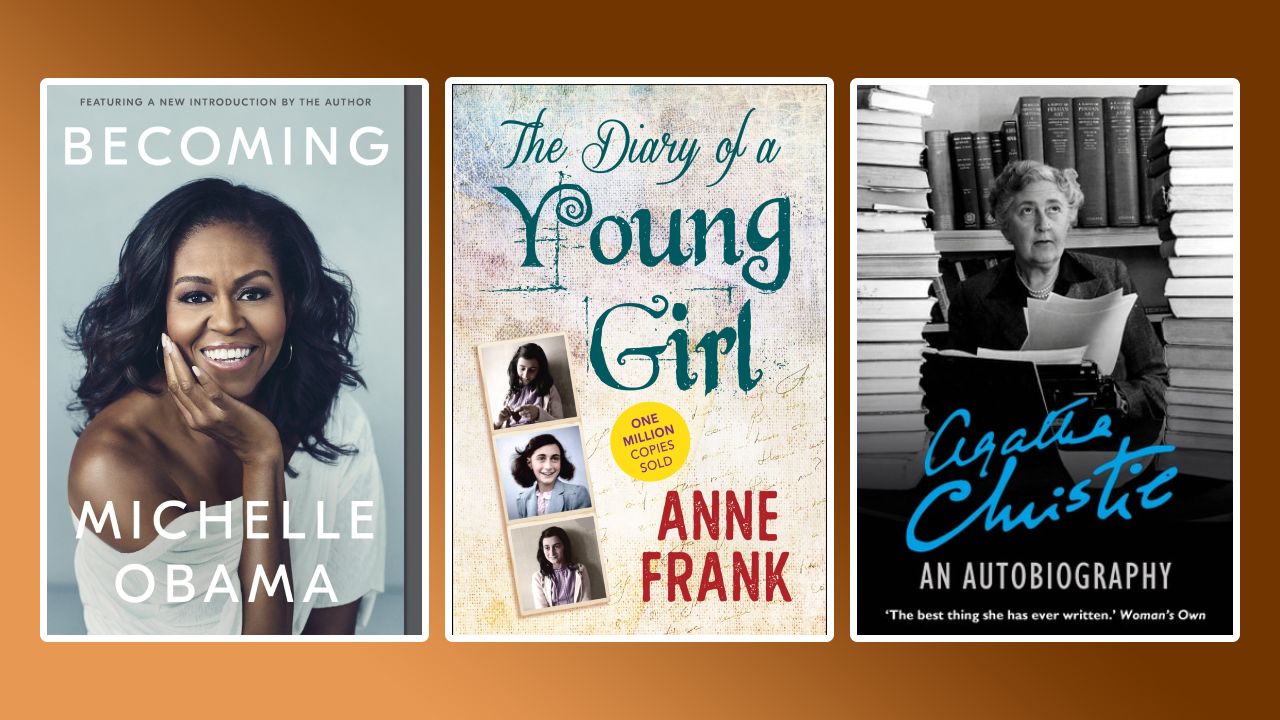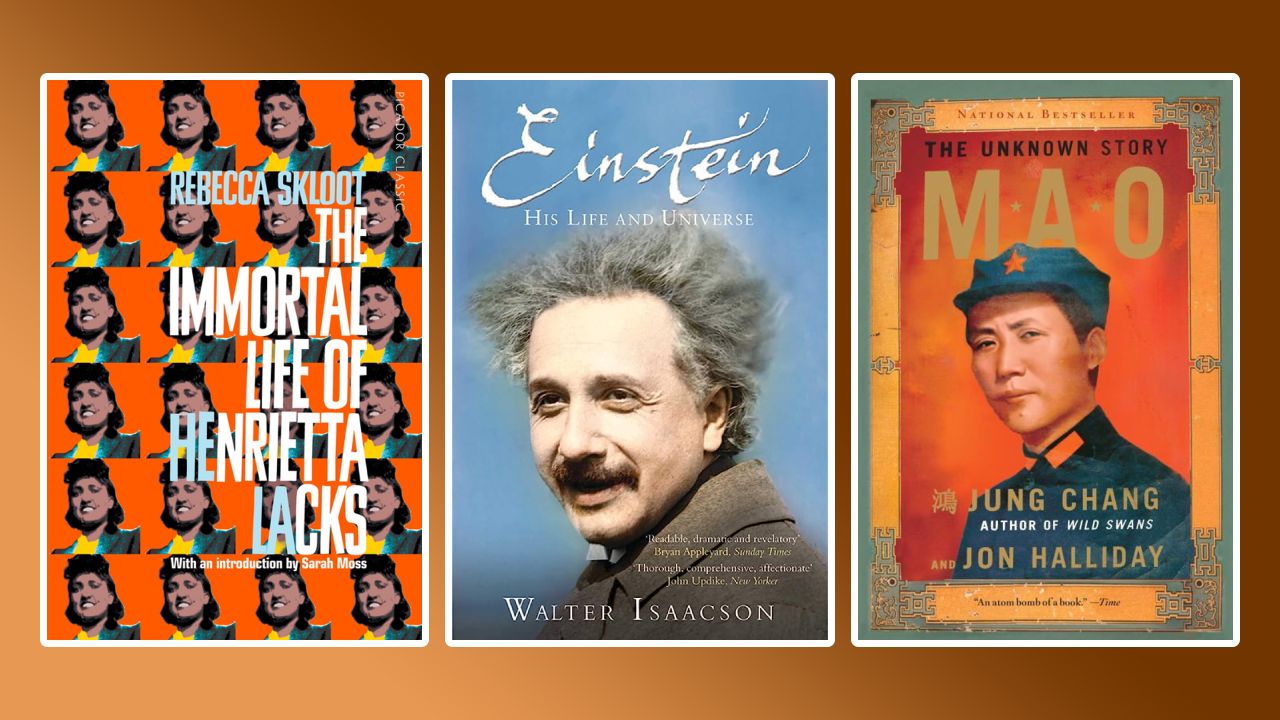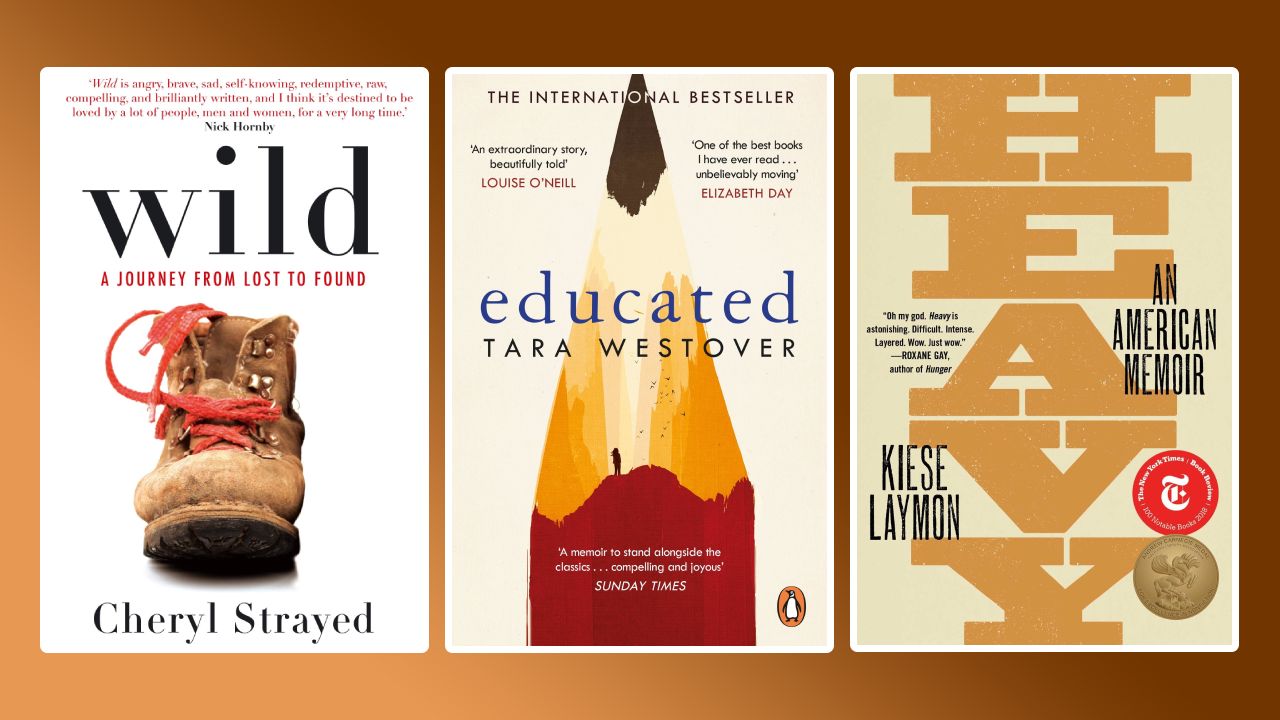Autobiography, biography, and memoir are three genres of literature that share similarities but are also distinct from one another. While they tell stories about people’s lives, they differ in scope, perspective, and purpose. Understanding the differences between these genres is vital for readers, writers, and researchers alike.
So, what exactly makes them different from each other?
In this article, we’ll compare autobiography vs. biography vs. memoir, discover the definitions of each, and see the best examples of each genre.
But before we dive deep into the topic and learn about these three book genres, let’s see a quick overview of what an autobiography, a biography, and a memoir are for those in a hurry!
An autobiography is a book written by the person whose life is being described. It is a first-person narrative that covers the author’s entire life, from birth to the present day. On the other hand, a biography is a book written about a person’s life by someone else. It is a third-person narrative that covers the subject’s life in a factual and objective manner.
Meanwhile, a memoir is similar to an autobiography, but instead of describing the person’s entire life, it focuses on a particular event or a specific period and delves deeper into the author’s state of mind at the time.
Now that you have a rough idea of what an autobiography, a biography, and a memoir mean, let’s move ahead and explore all these book genres in much more detail.
What is an Autobiography?
An autobiography is a book written by an individual about their own life. It covers the author’s experiences, thoughts, and feelings throughout their life.
Autobiographies are typically written in the first person and are subjective in nature. They can cover many topics, including personal experiences, family history, career achievements, and more.
An autobiography aims to provide readers with an in-depth look into the author’s life. It can be a way for the author to share their story, inspire others, or leave a legacy. Autobiographies can also be used as a form of therapy, allowing the author to reflect on their life experiences and gain a deeper understanding of themselves.
Autobiographies can be both subjective and objective. While they are written from the author’s point of view, they can still provide an accurate account of events. However, it is essential to note that autobiographies are not always completely accurate, as memories can be flawed and biased.
Autobiographies can cover a wide range of events and information. Some may focus on a specific period or event in the author’s life, while others may cover their entire life from birth to the present day.
Autobiographies are often written by famous people, such as politicians, athletes, and celebrities, who want to tell their life stories in their own words. They can be insightful and revealing, but they can also be self-serving and biased.
Here are a few famous autobiographies:
- “The Diary of a Young Girl” by Anne Frank
- “Born a Crime” by Trevor Noah
- “Becoming” by Michelle Obama
- “An Autobiography” by Agatha Christie
- “The Autobiography of Malcolm X” by Malcolm X
- “Long Walk to Freedom” by Nelson Mandela
What is a Biography?
A biography is a non-fictional account of someone’s life written by another person. It provides an objective understanding of the person’s life, covering various aspects such as their upbringing, education, career, achievements, and personal life.
The author of a biography is not the subject, and their interpretation of the subject’s life is not expected to be included in the text.
Biographies can be written about anyone, from historical figures to ordinary people who have made a significant impact on society. They are often researched and written by scholars, journalists, and other experts who want to provide a comprehensive and accurate account of a person’s life. And so, they are generally considered to be objective, as the author is expected to present a factual account of the subject’s life without any personal bias.
Biographies cover various events and information about the subject’s life. They may include details about the subject’s childhood, education, family life, career, and personal relationships. Biographies may also provide insights into the subject’s personality, beliefs, and values.
Here are some popular biographies and their authors:
- “Steve Jobs” by Walter Isaacson
- “A Beautiful Mind” by Sylvia Nasar
- “Unbroken” by Laura Hillenbrand
- “Mao: The Unknown Story” by Jung Chang
- “The Immortal Life of Henrietta Lacks” by Rebecca Skloot
- “Einstein: His Life and Universe” by Walter Isaacson
What is a Memoir?
A memoir is a form of autobiographical writing that focuses on a specific period, theme, or series of events in the author’s life. It is much similar to an autobiography; the only difference is that an autobiography covers the author’s entire life while the memoir is focused on a particular period or event.
Memoirs are personal narratives that typically include the author’s reflections, emotions, and thoughts about their experiences. They are often considered to be subjective, as they are based on the author’s memories and perceptions of events, rather than objective facts.
To be considered a memoir, a book must be a factual account of the author’s life, but it does not have to be a comprehensive chronicle of their entire life. Instead, it should provide insight into a particular aspect of their life, such as their childhood, career, or personal relationships.
Here are some popular memoirs that have resonated with readers:
- “Educated” by Tara Westover
- “The Glass Castle” by Jeannette Walls
- “Heavy: An American Memoir” by Kiese Laymon
- “Wild: From Lost to Found on the Pacific Crest Trail” by Cheryl Strayed
- “Running with Scissors” by Augusten Burroughs
- “Night” by Elie Wiesel
These memoirs are just a few examples of the wide range of experiences and themes that can be explored through this genre of writing.
Autobiography vs. Biography vs. Memoir – Key Differences:
When it comes to writing about someone’s life, there are three main options: autobiography, biography, and memoir. While they all share similarities, there are some key differences between them.
Autobiography
An autobiography is a factual and historical account of one’s entire life written by the person themselves. It is usually written in the first person and covers the author’s life from beginning to end. Although autobiographies are often written by famous people, they can be written by anyone.
Biography
A biography is the story of someone’s life written by someone else. It is usually written in the third person and covers the subject’s life from birth to death.
Memoir
A memoir is a nonfiction narrative in which the author shares their memories from a specific time period or reflects upon a string of themed occurrences throughout their life. Memoirs tend to focus on a particular aspect of the author’s life rather than their entire life story.
Comparison Chart
Here is a comparison chart highlighting the key differences between autobiography, biography, and memoir:
| Autobiography | Biography | Memoir | |
|---|---|---|---|
| Author | Subject | Other | Subject |
| Point of View | First Person | Third Person | First Person |
| Time Period | Entire Life | Entire Life | Specific Time Period or Theme |
| Focus | Entire Life | Subject’s Life | Specific Aspect of Author’s Life |
| Purpose | Tell Life Story | Inform and Entertain | Reflect on Specific Memories or Themes |
Conclusion
After examining the similarities and differences between autobiography, biography, and memoir, it is clear that each genre has its unique characteristics. While all three genres involve storytelling, they differ in their scope, focus, and style.
One notable difference between these genres is the level of objectivity. Biographies are often the most objective, as they are written by a third-party author who is not emotionally invested in the subject. In contrast, memoirs and autobiographies can be highly subjective, as they are written from the author’s perspective and often include their emotions and opinions.
Another difference is the audience. Autobiographies and biographies are usually intended for a broader audience, while memoirs are often more personal and may only appeal to a specific group of readers.
Overall, each genre has its strengths and weaknesses. It is up to the reader to decide which genre best suits their interests and preferences.
Also Read: What is the Fantasy Genre?



